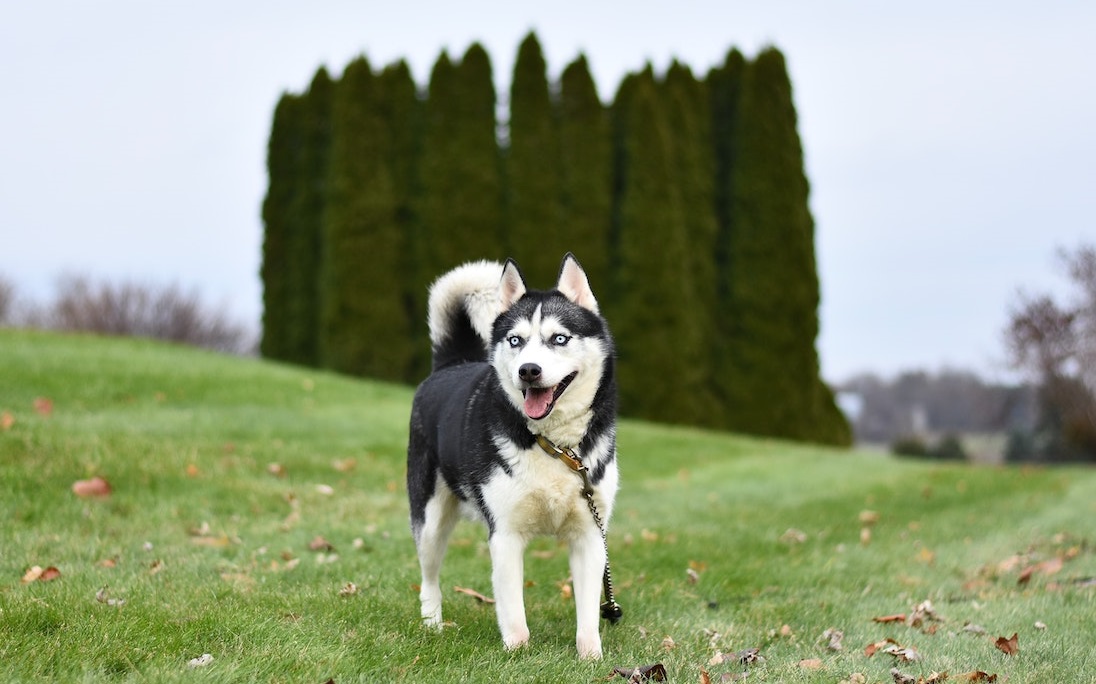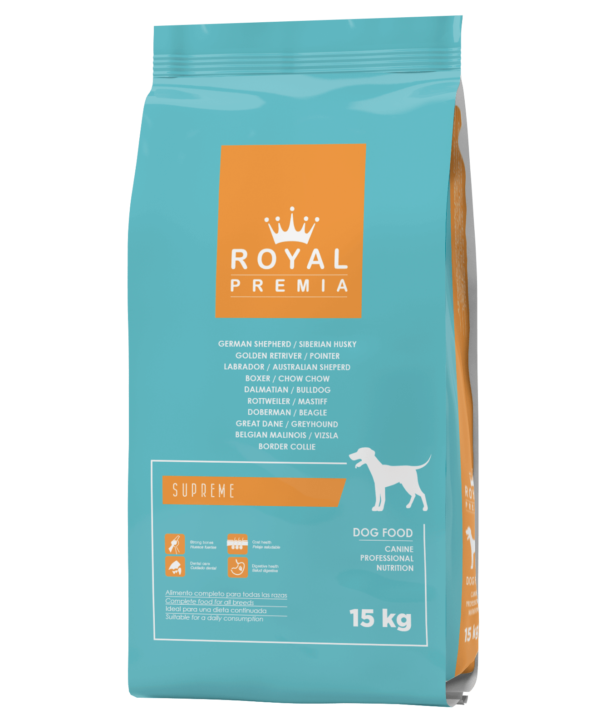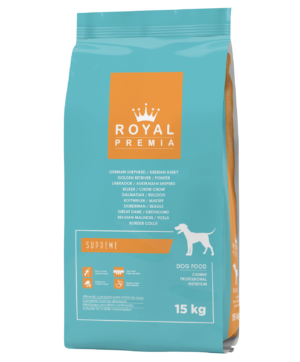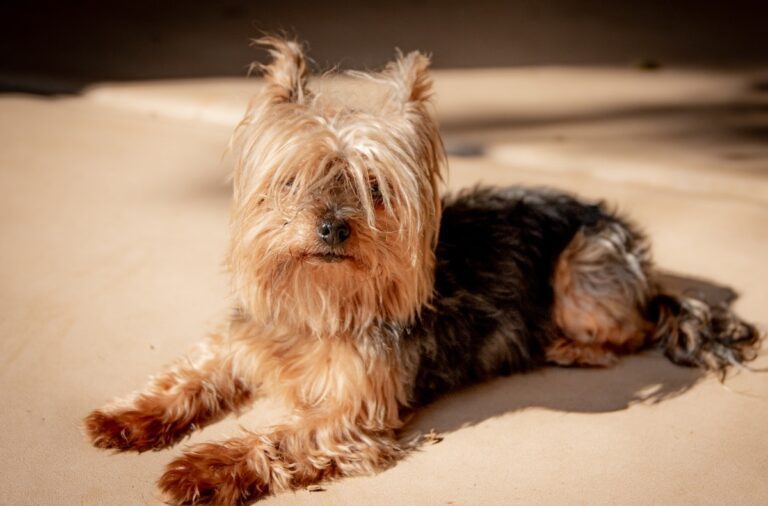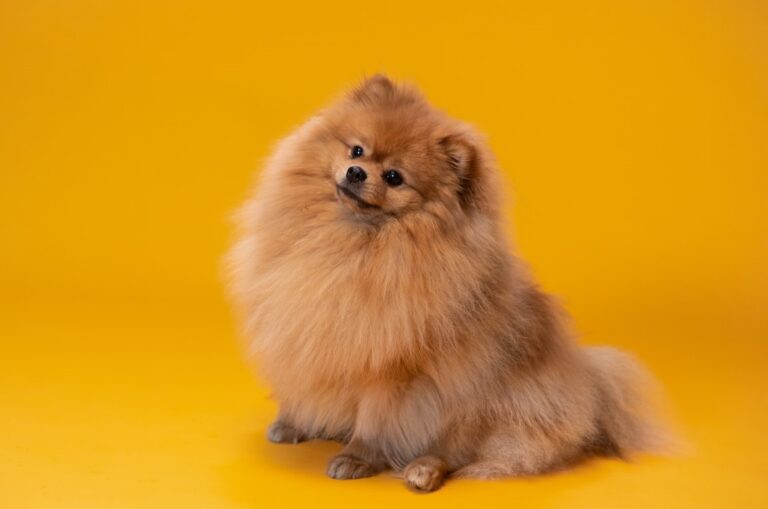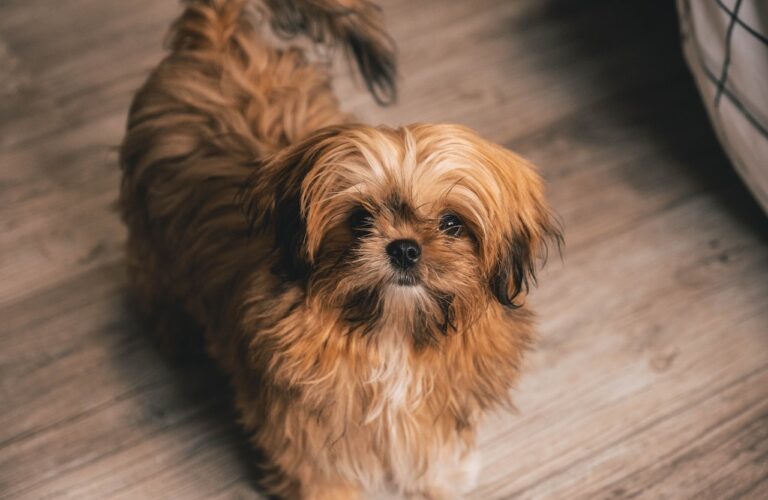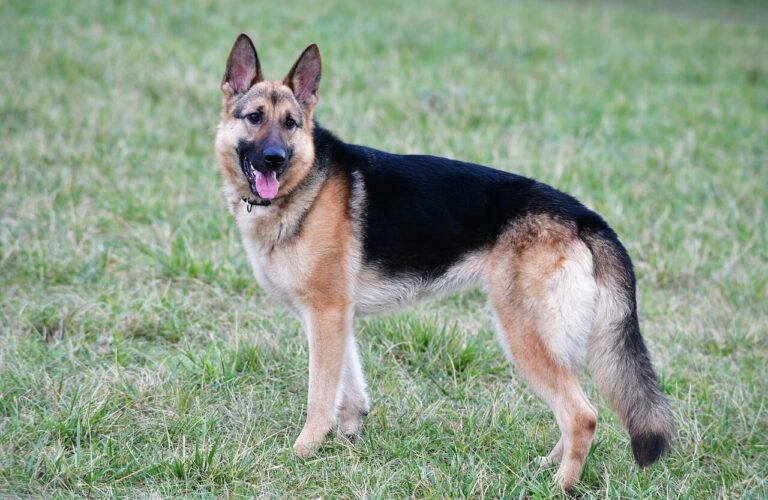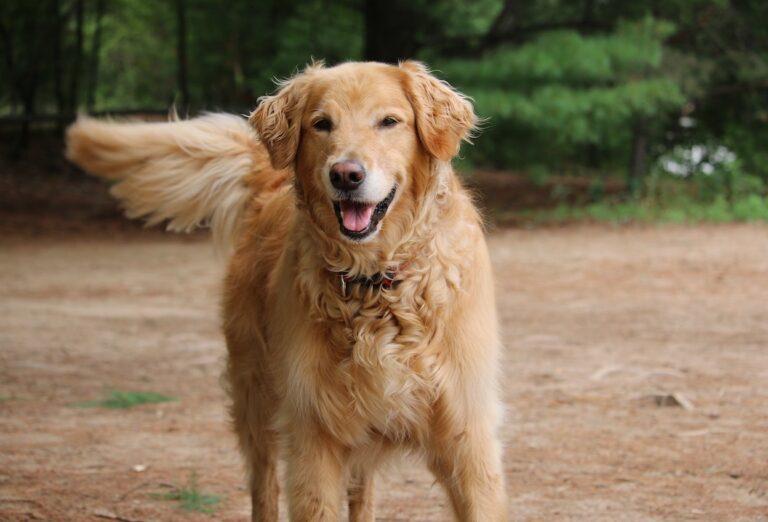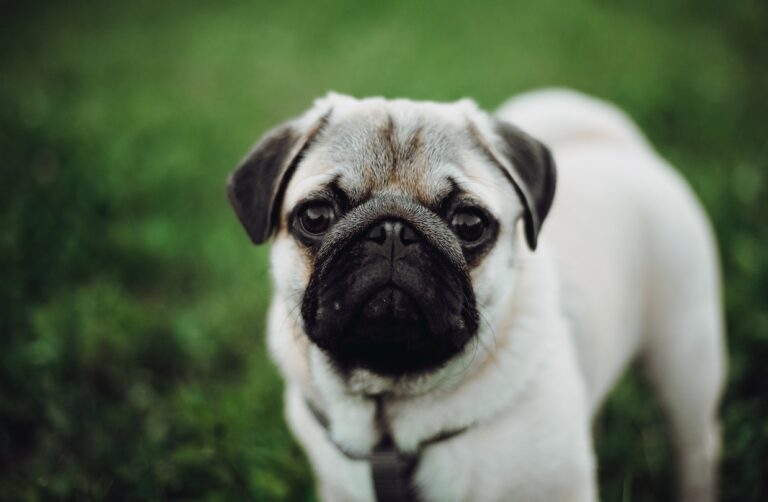Siberian Husky
The Siberian Husky is a captivating and energetic breed known for its striking appearance and friendly nature. Originally bred for sledding and endurance in the harsh Arctic regions, these dogs have gained popularity as family pets around the world.
In this, we will explore the key characteristics, care requirements and training tips for Siberian Huskies, making it an easy and informative read for dog lovers.
| Origin | Siberia |
| Size | Medium |
| Height | 51-61 cm (20-24 inches) |
| Life Expectancy | 12-16 years |
| Coat | Double coat, thick and plush |
| Colors | Various colors |
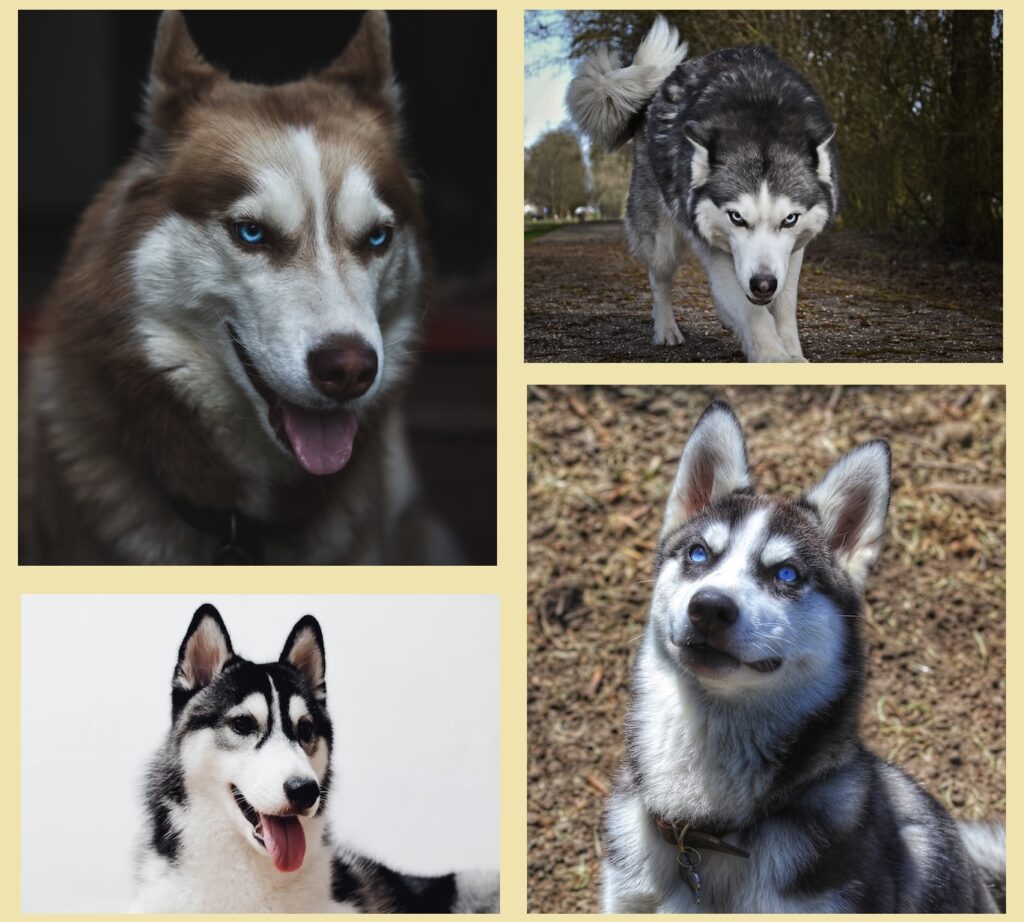
Appearance
Siberian Huskies are medium-sized dogs with a distinctive double coat that comes in various colors and patterns. Their expressive almond-shaped eyes can be blue, brown, or a combination of both. With erect ears and a bushy tail that curls over the back, Huskies possess a regal and majestic appearance.

Temperament
Huskies have a friendly and outgoing temperament, making them excellent companions for families and individuals alike. They are known for their affectionate nature and love to spend time with their human pack. However, their independent streak and high energy levels mean they require proper training and regular exercise.

Exercise Needs
Due to their sled dog heritage, Siberian Huskies have a lot of energy to burn. Daily exercise is essential to keep them mentally and physically stimulated. Engaging in activities like brisk walks, jogging, or even pulling a lightweight cart can help fulfill their exercise needs and prevent destructive behavior due to boredom.
Grooming Siberian Husky
The Husky’s thick double coat helps them stay warm in cold climates but requires regular grooming to keep it in good condition. They shed their coat twice a year, known as “blowing their coat,” during which their shedding is more intense. Regular brushing and occasional baths can help control shedding and keep their coat healthy and shiny.
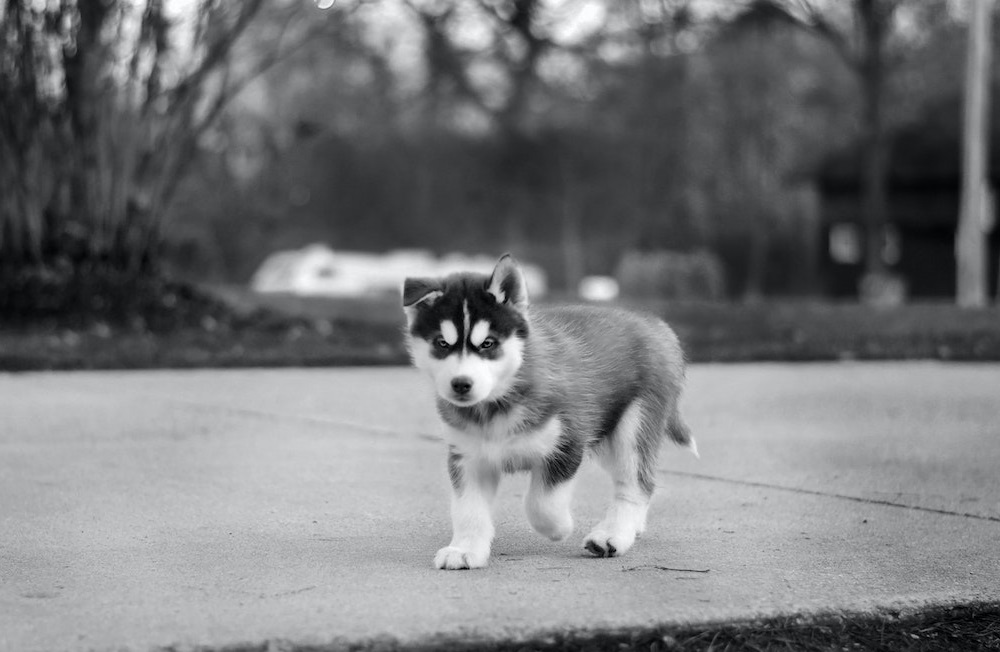
Siberian Husky Training
Siberian Huskies are intelligent dogs, but they can be stubborn at times. Consistency and positive reinforcement training methods work best with this breed. Early socialization and obedience training are crucial to ensure they grow into well-behaved dogs. Huskies have a strong prey drive, so proper leash training is essential to prevent them from chasing after small animals.
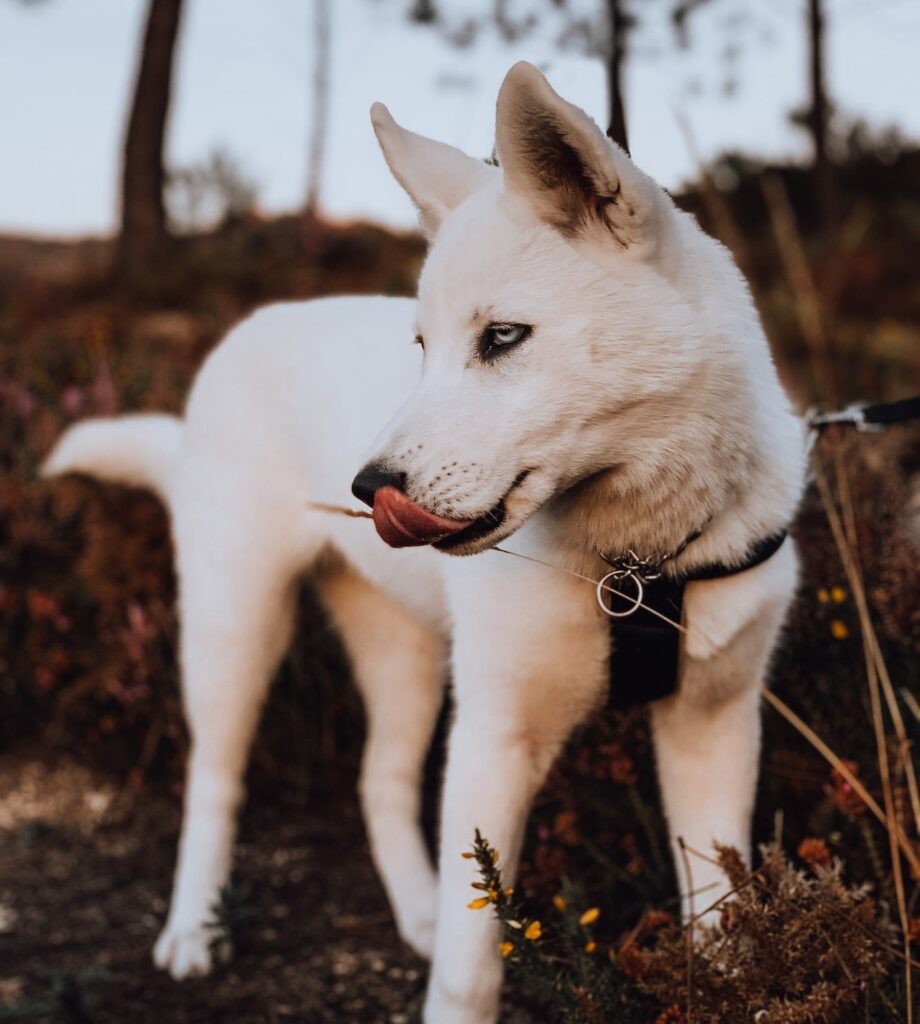
Health Considerations
Overall, Siberian Huskies are generally healthy dogs, but like all breeds, they are prone to certain health conditions. Common issues include hip dysplasia, eye problems (such as cataracts), and certain autoimmune disorders. Regular veterinary check-ups, a balanced diet, and exercise can help maintain their overall health.
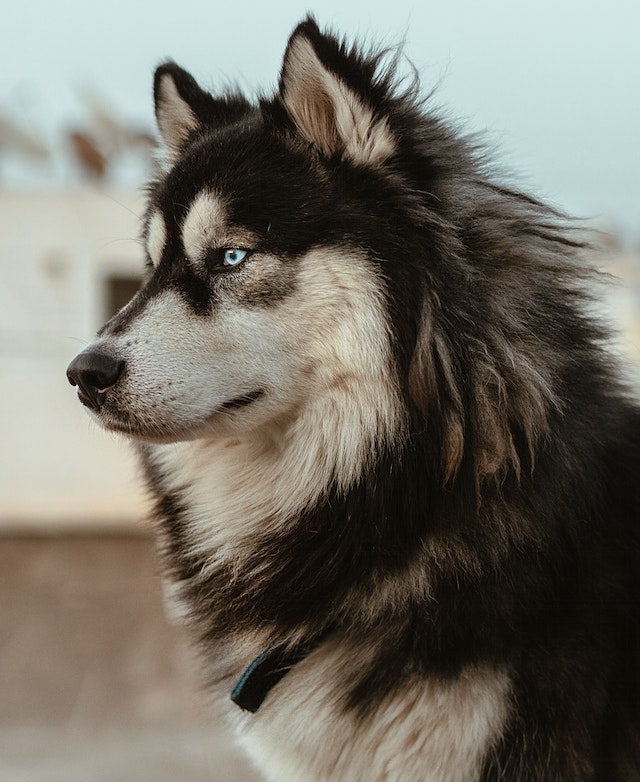
Siberian Huskies Diet
Siberian Huskies have specific dietary needs. It’s important to feed them a high-quality dog food that is appropriate for their age, size, and activity level. A balanced diet that provides essential nutrients, including protein, healthy fats and carbohydrates, is important for their overall health. It’s always a good idea to consult with a veterinarian to determine the best diet for your Siberian Husky.
Royal Premia Dog Food for Siberian Husky
-
Basic Adult Dry Dog Food 15kg All Medium and Large Breeds
-
Supreme Dry Dog and Puppy Food 15kg All Medium and Large Breeds
Breed Overview
Siberian Huskies are beautiful, intelligent, and loyal dogs that make wonderful companions for those willing to meet their exercise and socialization needs. Their striking appearance and friendly nature have captured the hearts of many dog enthusiasts. With proper care, training and lots of love, a Siberian Husky can bring joy and endless adventures to your life.
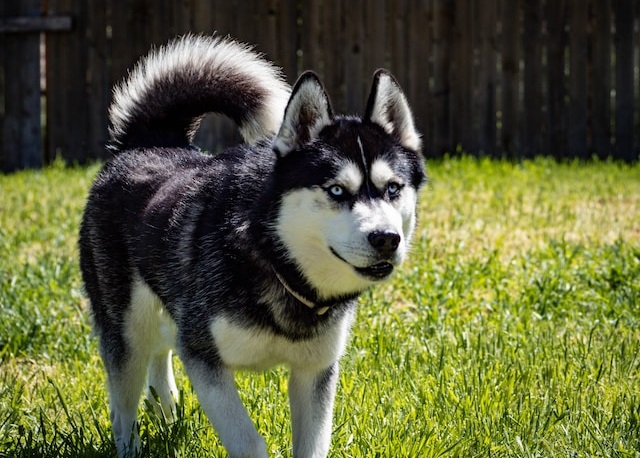
Siberian Husky Frequently Asked Questions
Can Siberian Huskies live in warmer climates?
Siberian Huskies are originally from cold climates and have thick double coats that help insulate them from the cold. While they can adapt to warmer climates, it’s important to take precautions to keep them cool and prevent overheating. Provide them with plenty of shade, fresh water and avoid exercising them during the hottest parts of the day. It’s also helpful to provide them with cooling mats or access to air-conditioned areas during hot weather.
Are Siberian Huskies good with other pets?
Siberian Huskies can generally get along well with other pets, including dogs and cats, if they are properly socialized from a young age. However, their strong prey drive may make them prone to chasing smaller animals, so caution should be exercised when introducing them to smaller pets such as rabbits or guinea pigs. It’s important to supervise interactions and provide appropriate training and socialization to ensure a harmonious coexistence.
Can Siberian Huskies be left alone for long periods?
Siberian Huskies are social animals that thrive on companionship and interaction with their human family. They may experience separation anxiety if left alone for long periods, which can lead to destructive behavior or excessive barking. Ideally, they should not be left alone for extended periods. If you need to be away, it’s important to ensure they have plenty of mental and physical stimulation, such as puzzle toys, long-lasting chews or the company of another compatible dog.

